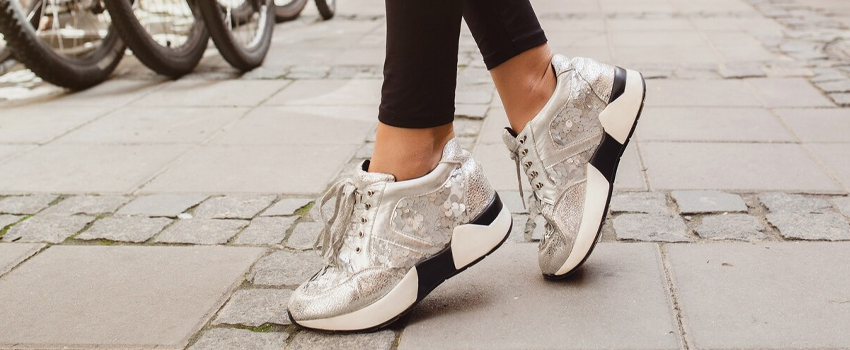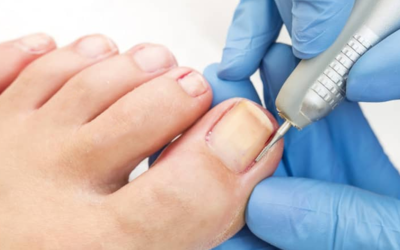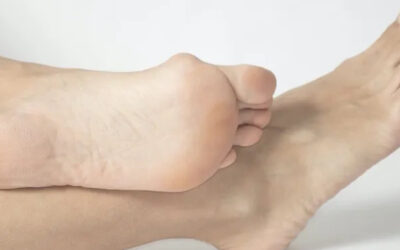Choosing the right footwear is critical for individuals with diabetes, as poorly fitting shoes can lead to serious foot complications, including ulcers, infections, and even amputations. Diabetic feet require special care to ensure comfort, proper circulation, and protection from potential injuries. At Capital Foot Care, our expert podiatrists—Dr. Muhammad A. Khalid, Dr. Fritz-Andre Duterlein, and Dr. Herman Zarate—understand the unique needs of diabetic patients and provide guidance on selecting footwear that supports foot health and prevents complications.
Why Proper Footwear Matters for Diabetic Feet
Diabetes can cause neuropathy (nerve damage) and poor circulation in the feet, reducing sensation and slowing the healing process. This makes the feet more susceptible to injuries, ulcers, and infections. The right footwear can help prevent pressure points, reduce friction, and provide the necessary support to keep your feet healthy.
Common Risks Associated with Improper Footwear:
- Blisters, corns, and calluses from tight or ill-fitting shoes
- Ulcers caused by pressure points or friction
- Reduced circulation from shoes that are too tight or restrictive
Infections from cuts or injuries that go unnoticed due to reduced sensation
Features to Look for in Diabetic Footwear

When choosing footwear for diabetic feet, certain features are essential to ensure comfort, protection, and support:
- Proper Fit
- Shoes should fit well without being too tight or loose. A snug fit prevents sliding, which can cause blisters, but should not restrict circulation.
- Leave about half an inch of space between your longest toe and the tip of the shoe to allow for movement.
- Wide Toe Box
- A wide and deep toe box ensures that your toes have enough room to move freely without rubbing against the shoe.
- Cushioning and Support
- Look for shoes with ample cushioning to absorb shock and reduce pressure on the soles of your feet.
- Arch support is essential to distribute weight evenly and reduce strain on the feet.
- Soft, Breathable Materials
- Shoes made from soft, flexible, and breathable materials, such as leather or mesh, help prevent irritation and keep feet dry.
- Adjustable Closures
- Velcro straps or laces allow you to adjust the fit of the shoe for added comfort and security.
- Seamless Interior
- Shoes with a seamless interior reduce the risk of irritation and pressure points that can lead to sores or ulcers.
- Removable Insoles
- Removable insoles allow for the use of custom orthotics, which can provide additional support and cushioning tailored to your needs.
Tips for Choosing the Right Shoes
Here are some practical tips to help you select the best footwear for diabetic feet:
- Shop Later in the Day
Feet tend to swell throughout the day, so it’s best to shop for shoes in the afternoon or evening to ensure a proper fit.
- Wear the Right Socks
Bring the socks you typically wear to ensure the shoes accommodate them comfortably.
- Get Professionally Fitted
Have your feet measured by a professional to ensure you’re selecting the right size and width.
- Break in Shoes Gradually
New shoes should be worn for short periods initially to prevent blisters or irritation.
- Inspect Your Feet Daily
Check your feet daily for any signs of redness, blisters, or irritation caused by your shoes. Contact your podiatrist if you notice any issues.
Common Types of Diabetic Footwear

There are several types of shoes designed specifically for diabetic feet:
- Diabetic Walking Shoes: Lightweight and supportive, these shoes are ideal for daily activities.
- Custom-Made Shoes: Designed to accommodate foot deformities or specific needs, custom shoes provide the highest level of protection.
- Orthopedic Shoes: These provide additional support and cushioning for individuals with foot pain or other conditions.
- Extra-Depth Shoes: Designed with extra space to accommodate swelling or orthotics.
When to Consult a Podiatrist
If you have diabetes, it’s essential to work closely with a podiatrist to monitor your foot health and ensure your footwear meets your needs. At Capital Foot Care, we specialize in diabetic foot care, including custom orthotics and professional shoe fittings. Contact us if you experience:
- Persistent foot pain or discomfort
- Blisters or sores that don’t heal
- Changes in foot shape or size
Our podiatrists are here to provide expert guidance and personalized care to keep your feet healthy and protected.
Why Choose Capital Foot Care?
At Capital Foot Care, we are dedicated to helping diabetic patients maintain optimal foot health. Our experienced team—Dr. Muhammad A. Khalid, Dr. Fritz-Andre Duterlein, and Dr. Herman Zarate—offers comprehensive foot evaluations, custom orthotics, and expert advice on footwear selection.

For more information or to schedule an appointment, contact us at 301-927-FOOT (3668) or email us at [email protected]. Visit us at one of our convenient locations:
- 6510 Kenilworth Ave. Suite 2300, Riverdale, MD 20737
- 7610 Carroll Ave. Suite 380, Takoma Park, MD 20912
- 8816 Jericho City Drive, Largo, MD 20785
- 2041 Martin Luther King Jr Ave SE, Suite 103, Washington, DC 20020
1328 Southern Ave SE, Suite 209 Washington, DC 20032
Conclusion
Choosing the right footwear for diabetic feet is a crucial step in preventing complications and maintaining foot health. By prioritizing comfort, support, and proper fit, you can reduce your risk of ulcers, infections, and other foot issues. At Capital Foot Care, we’re here to guide you in selecting the best shoes and provide the expert care you need to keep your feet healthy and pain-free. Contact us today to take the first step toward better foot health.










